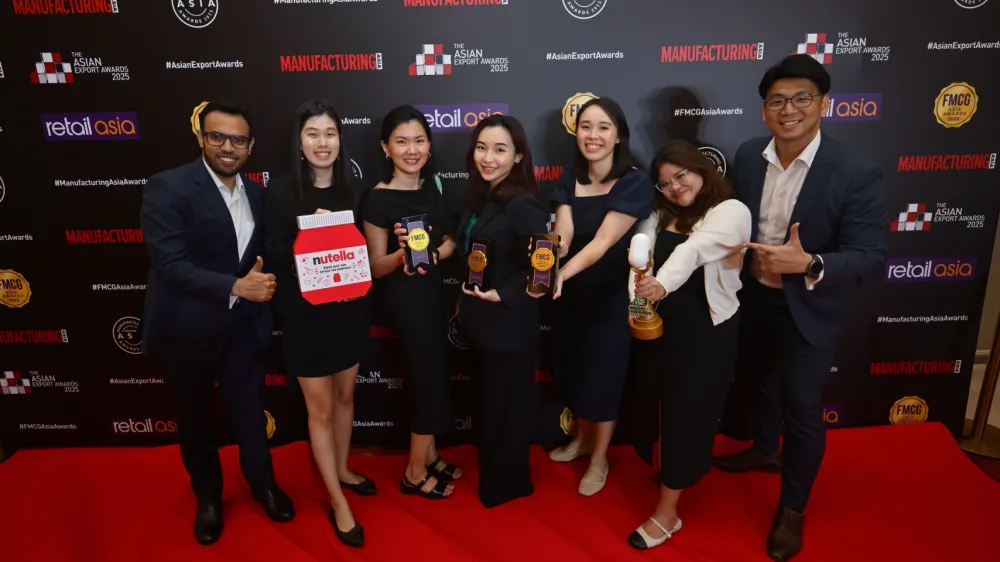
Euromonitor’s Hiromi Yamaguchi: Loyalty programmes, digital integration vital amidst evolving consumer expectations
To navigate diverse markets successfully, retailers must leverage technologies like AI to integrate online and offline experiences whilst implementing tailored strategies for sustainable growth.
The retail sector is in a constant state of evolution, shaped by economic dynamics, technological advancements, and changing consumer preferences. Understanding this dynamic landscape requires insights from seasoned experts, such as Hiromi Yamaguchi, Research Manager at Euromonitor International.
Yamaguchi's journey in the field began in 2013, when he joined Euromonitor International. Leading a team of analysts specialising in consumables, durables, and retail market research, his role revolves around deciphering actionable insights to drive growth strategies and foster innovation.
With a bachelor's degree in International Business and Chinese Studies from the University of New South Wales, Yamaguchi brings a global perspective to his work. His expertise also extends to retail modernisation, digital transformation, and sustainability initiatives.
As a judge of the Retail Asia Awards, Yamaguchi plays a key role in recognising excellence within the retail sector. In this exclusive interview, Yamaguchi shares his insights on emerging markets, digitisation, sustainability practices, shifting consumer behaviours, and the role of artificial intelligence and data analytics in shaping the future of retail.
Join us as we explore the nuances of the retail industry through Yamaguchi's perspective, uncovering the opportunities and challenges that lie ahead.
Given the evolving landscape of global economic conditions, how do you foresee the role of emerging markets in shaping the future of the retail industry, and what strategies should retailers employ to navigate these diverse environments effectively?
In Asia Pacific, the slowing global economic growth, coupled with the COVID-19 pandemic, is the focal point for which emerging economies show their importance in regional growth in the future. For clarification, developed economies in this region include the Greater China, Japan, South Korea, and Singapore.
In the emerging economies in the region, the rapid retail modernisation led by digitalisation and OMO and improving macroeconomic situations, especially increased purchasing power and urbanisation, are expected to fuel growth. In the emerging economies, retailers are expected to continue nurturing the mobile-first approach, offering seamless shopping experiences between on/offline whilst serving price-conscious consumers seeking value for money. These all are expected to contribute to the CAGR 5.7% growth between 2023 and 2028 in the emerging economies when our expected CAGR growth in the developed economies in the region is at 3.9% for the same period.
In light of the ongoing digitisation trends, how can traditional brick-and-mortar retailers seamlessly integrate technology into their operations to enhance customer experiences and stay competitive in an increasingly digital marketplace?
Digitalisation impacts every aspect of retail business, both frontend and backend. These are part of retail modernisation. At its core, businesses need backend IT infrastructure and data linking elements to stay competitive. Now, businesses can start with small capital through the means of new technologies such as live commerce. Even so, for a smooth transition, backend improvements in warehouse/stock management and supply chain management are needed.
Additionally, retailers are expected to implement OMO systems and strategies on customer loyalty, e-commerce fulfilment, and payments for a better customer experience. This is not to say that this is the one-fit-all solution. It really depends on what works for the retailer based on their brand positioning, competitive strategies, and retail channel. Also, different consumers value different things.
With sustainability becoming a pivotal aspect of consumer choices, what innovative approaches have you observed in the retail sector to minimise environmental impact, and how can these practices be scaled or adapted by businesses of varying sizes?
Sustainability comes in many shapes and forms. Changing lighting to LED from fluorescent can address sustainability, or apparel retailers offering garments only from sustainable materials is considered sustainable too. It also really depends on the retail category the retailer is operating in. What works for an apparel retailer is very different from what works for a grocery retailer.
One innovative approach that caught attention in 2023 is the collaboration between Carousell and IKEA in Singapore, highlighting the practice of re-commerce. They aimed to facilitate and encourage the re-sale of their goods, whilst consumers are eligible to earn extra rewards from both platforms. One needs to take note of the main objective of the retailer in implementing the sustainability programme and the resources available to them before implementing a sustainability strategy.
What are your insights into the changing dynamics of consumer behaviour post-pandemic, and how can retailers tailor their strategies to meet the evolving expectations and preferences of today's consumers?
The post-pandemic era has seen economic uncertainties, which changed the consumer mindset to be more cost-conscious. Consumers are seeking more value beyond prices. It can come in the form of various initiatives. One of them can be loyalty programmes. Loyalty in recent years has come across the digitalisation.
For example, Yuu Rewards, launched by DFI Retail Group, is a digital point-based loyalty programme that offers perks and benefits for its members across 2,500 merchants. The programme expanded to partner with GoJek and DBS in 2023 in Singapore, allowing Yuu Rewards to tap into GoJek’s almost a million active users (0.8 million in 2019) in Singapore. DFI Retail Group is currently at the third in Grocery Retailers in Singapore, behind NTUC FairPrice Co-Operative Pte. Ltd. and Sheng Siong Group Ltd., and the expanding loyalty programme beyond grocery retailers is expected to bring in more footprints to the grocery stores in the long run. Consumers, on the other hand, can enjoy discounts through the programme, especially in the midst of economic uncertainties.
With the increasing convergence of online and offline retail experiences, what role do you see artificial intelligence and data analytics playing in creating a seamless and personalised shopping journey for consumers?
Technology has accelerated O2O and omnichannel strategies for retailers. Amongst the technologies available to them, artificial intelligence and data analytics are used for targetted marketing, more tailored customer support, and product recommendations based on shopper’s purchasing patterns or the pattern from a similar persona.
Data analytics also allows retailers to forecast demands better by understanding the demand fluctuation collected across channels, making the forecast more robust. All are designed to help consumers build confidence in their purchasing decisions. However, at the same time, such analytics, or building intelligence, requires quality data in volume, and businesses need to invest in resources in terms of time and humans.
Failing to do so could lead to poor recommendations, resulting in less consumer confidence in the systems and ultimately, to the retailers, as they might mistake the recommendation not based on impartial data analytics but on retailers wanting to remove excessive product stocks.
As a judge for the Retail Asia Awards in 2024, could you shed light on the key criteria or attributes you will be looking for in submissions?
- BoP initiatives from retailers
- Retailers integrate experiences into brick-and-mortar stores



















 Advertise
Advertise







